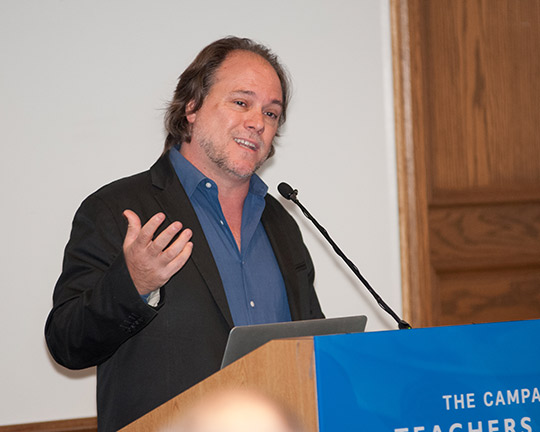In TC's Tisch Lecture, Reed Stevens forecasts trends in "companion technology" and the implications for teaching and learning
In TC's Tisch Lecture, Reed Stevens forecasts trends in "companion technology" and the implications for teaching and learning.
In a lecture titled "Cyborg Learning," Stevens, Professor of Learning Sciences at Northwestern University, argued for the importance of studying "cognition in the wild" -- homes, workplaces, places of worship, ball fields -- as a basis for reorganizing learning experiences in schools. He cited findings that young people in grades 1-12 spend just 18.5 percent of their waking hours on formal school subjects, while those ages 3 through 8 spend 21.5 percent of their time using various forms of media. and those ages 8-18, nearly 50 percent.
Stevens has led two major centers funded by the National Science Foudation, one focused on teaching and learning in the STEM fields (science, technology, engineering and mathematics), and the other on "STEAM," which incorporates art and design elements, including teaching tools and software. Yet he has also been branded as "anti-technology" in some quarters for contending that traditional pen and paper is a better collaborative venue than online technology.
The Tisch Lecture is funded by Teachers College Board Vice Chair Laurie Tisch.
Published Monday, Nov. 17, 2014
